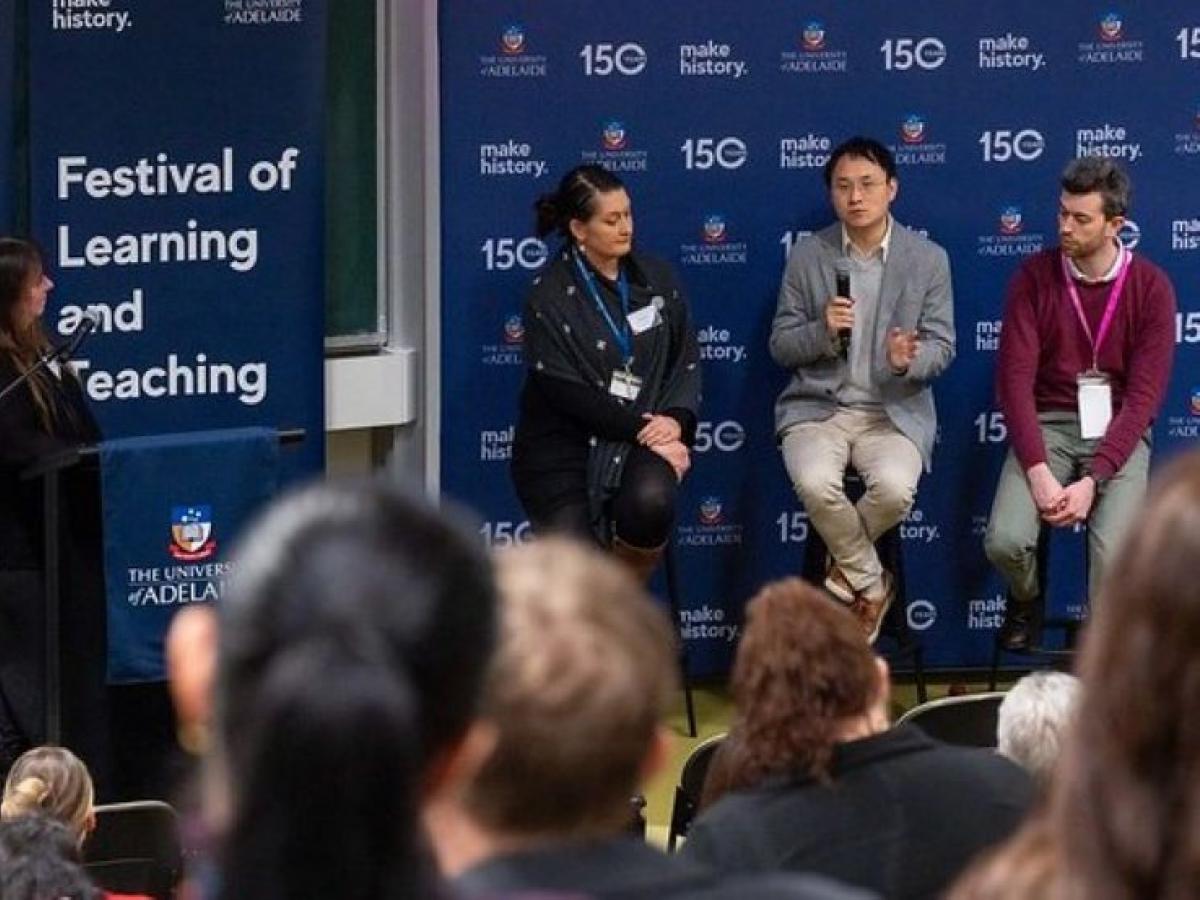562 Days of AI: Reflections from the Festival of Learning and Teaching
In June, the University hosted its Festival of Learning and Teaching, centred on the topic of 'Meaningful approaches to learning and teaching in the age of AI’. One festival event was the panel discussion ‘562 days of AI: What have we learned since Chat-GPT arrived?’, which explored some of the recent developments in generative artificial intelligence (gen AI) technology, and their implications for teaching and learning practice.
Opening the discussion, panel chair Dr Cheryl Pope, from the School of Computer and Mathematical Sciences, emphasised the transformative effect ChatGPT had in making gen AI technology accessible to everyday users, describing its release in November 2022 as a “watershed moment” in digital technology, similar to the development of web browsers in the early 1990s.
She asked the panel members how educators can approach gen AI tools with ethical, responsible, and principled engagement.

Associate Professor Lingqiao Liu (School of Computer and Mathematical Sciences), is an academic member of the Australian Institute for Machine Learning. He provided a background overview of how the earlier developments in GPT models—about two years before ChatGPT—were an important “unifier” for the AI natural language processing research field; which had previously been more fragmented and varied.
“It’s just amazing… its capability is just beyond imagination.” Liu said.
He said that gen AI will soon be embedded across the whole workforce, and stressed the importance of integrating it into educational practices, adding, “We should educate our students on how to use AI effectively and ethically.”
Professor Carolyn Semmler leads the Applied Cognition and Experimental Psychology (ACEP) research group in the University of Adelaide’s School of Psychology. Her work is situated at the intersection of psychology and emerging technology and focuses on the theories and models of cognition and decision-making that affect how humans interact with technology such as gen AI.
“What we're interested in is, do humans actually change their own behaviour as a function of these interactions, and what is it about the interaction itself that mimics our usual behaviour with other humans that shifts our decision-making, and whether we accept information as being true or false?” Semmler said.
In the context of learning and teaching, she said all students need to be taught the fundamentals of how gen AI models work and have knowledge of what AI models are actually doing.
“I would like to see every single student making an informed decision about how they use AI in their own work.”Professor Carolyn Semmler
Richard McInnes is Manager of Educational Design in the Learning Enhancement and Innovation unit. He offered a critical perspective on using AI in course development, cautioning against gen AI’s homogenising tendencies, and stressing the need for a human-in-the-loop framework.
“We need human involvement and intervention in gen-AI to validate and verify.”
He also raised the ethical challenges of current gen AI systems being trained on biased and copyrighted data, asking, “How diverse and ethical are the data sources and perspectives that inform the AI's outputs?”
The panel concluded with a lively Q&A session, contemplating how to find a balance between leveraging AI’s capabilities, recognising its weaknesses, and preserving the essence of human-centred education.
The final Festival of Learning and Teaching for 2024 will be held on Thursday 31 October 9.30am - 1.30pm.
Article by Eddie Major, Coordinator, AI in Learning and Teaching
